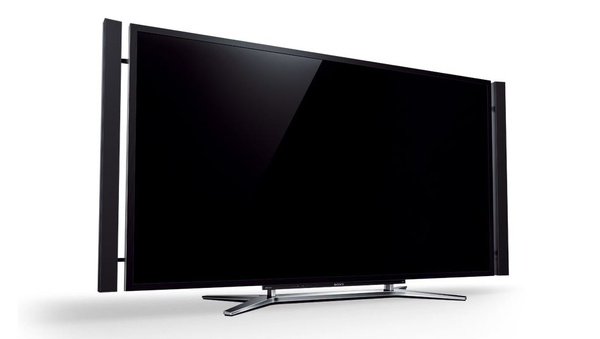
Sony has made similar moves, dropping their 55-inch models by $1000 and the 65-inch model by $1500.
One dealer had this to say of the move: "Margins will remain the same, as far as percentage."

What is the market for these TVs? Folk who want their new blu-ray collections to look washed out and pixelated?
since it's an even, square multiple (4x) of a 1080p display's resolution, 4K TVs should play 1080p video with no detectable scaling artifacts. It's this simple: Each 1080p pixel = 4 4K pixels. The video should look no worse than the equivalent 1080p-native display, all other things being equal (TV video quality also varies significantly among models/manufacturers, so other issues can arise).
In fact, this would be an excellent test for anyone thinking of buying a 4K TV/monitor; how does 1080p look on it? If there is *any* degradation, the 4K display is substandard, at best.
So until there is 4K media readily available, these TV's are pretty much on par with a 1080P....sign me up!
Originally posted by DarthMopar:Right-on!
So until there is 4K media readily available, these TV's are pretty much on par with a 1080P....sign me up!
Originally posted by Bozobub:
since it's an even, square multiple (4x) of a 1080p display's resolution, 4K TVs should play 1080p video with no detectable scaling artifacts. It's this simple: Each 1080p pixel = 4 4K pixels. The video should look no worse than the equivalent 1080p-native display, all other things being equal (TV video quality also varies significantly among models/manufacturers, so other issues can arise).
In fact, this would be an excellent test for anyone thinking of buying a 4K TV/monitor; how does 1080p look on it? If there is *any* degradation, the 4K display is substandard, at best.
Originally posted by 8686:False, you definitely are missing something ^^'. All the 4K TV needs to do to scale 1080p with no artifacts, is make each 1080p image pixel = a square (well, really, rectangular, with pixel aspect ratio; pixels aren't actually square) of 4 4K pixels. That rectangle of pixels will look exactly like the original 1080p single pixel.
Originally posted by Bozobub:
since it's an even, square multiple (4x) of a 1080p display's resolution, 4K TVs should play 1080p video with no detectable scaling artifacts. It's this simple: Each 1080p pixel = 4 4K pixels. The video should look no worse than the equivalent 1080p-native display, all other things being equal (TV video quality also varies significantly among models/manufacturers, so other issues can arise).
In fact, this would be an excellent test for anyone thinking of buying a 4K TV/monitor; how does 1080p look on it? If there is *any* degradation, the 4K display is substandard, at best.
Help me out on this one, maybe i am missing something. If what you say is true then the 1080 picture in its native form would be 1/4 the size on your tv screen. To fill up your entire screen The tv would then have to fabricate the other 3/4 of data. Similar to native dvd res on your 1080p right now. The picture would no doubt be degraded. Otherwise why would they even bother with 4k to begin with?
So why does dvd res of 720x480 look terrible on a 1080p screen? Ok this makes sense. But it still seems like the pixels will then be larger. If one pixel on a 1080 screen is now taking up the space of 4 pixels on a 4k screen, wouldnt you then have to sit further away to not notice this? Wouldnt this be similar to blowing up a picture on a computer? Doesn't the data have to come from somewhere?
*Oops, double post somehow*
You're failing to understand. A single 1080p pixel is *exactly* the same size as 4 4K pixels, so one 1080p pixel/ scaled up to 4 4K opixels still looks just like a single 1080p pixel. Thewre won't be any size change.
A resolution of 720x480 is NOT an even exponent of a 1080p display; 1080 is not an even multiple of 720, much less a a power of 4 difference. This leaves "orphan" pixels in any attempt to scale up or down in resolution, since it cannot divide or multiply evenly.
If scaling down b(say, 4K to 1080p), then you certainly will lose resolution/detail, but you will lose less if you choose to reduce it by a power of 4. So, a theoretical resolution of 220x180 would not have the additional problem of "orphan" pixels. Of course, this is offset by how much detail you lose by downscaling to such a low resolution; this is just an example of how it works either way.
A 4K TV displaying 1080p format should look exactly like a native 1080p display. Each 4K pixel is exactly 1/4 the size of a 1080p pixel; all the TV needs to do is display 4 pixels in a "square" (again, really a rectangle, due to pixel aspect ratio; they're somewhat taller than wide, and the ratio is the same for all current displays) to display the 1080p image properly.